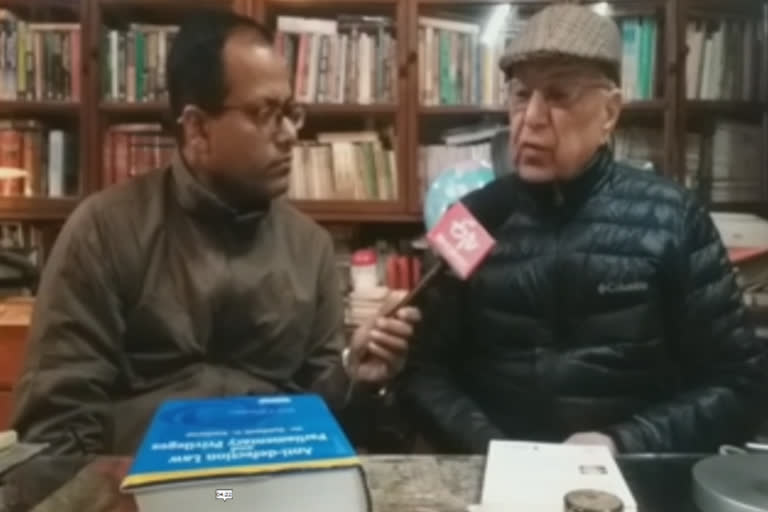متعدد ریاستوں میں چھوٹے سے سیاسی فائدے کے لیے پارٹی کی تبدیلیوں نے سپریم کورٹ کو بھی معاملہ میں مداخلت کے لیے مجبور کردیا ہے۔
سینئر قانون داں اور سابق سکریٹری جنرل لوک سبھا ڈاکٹر سبھاش کیشپ نے کہا کہ الیکشن کمیشن کو ایسے معاملات میں مداخلت کے لیے ذمہ داری سونپی جانی چاہئے۔
ڈاکٹر سبھاش کیشپ نے کہا کہ یہ ایک سنجیدہ معاملہ ہے اور ممبروں کے ذریعہ پارٹی کی وابستگی کو تبدیل کرنے کے موضوع پر بہت کچھ کہا جاسکتا ہے۔
انہوں نے کہا کہ اس میں کوئی شک نہیں ہے کہ ہر کسی کو بشمول اراکین پارلیمنٹ اور اراکین اسمبلی کو اپنے فائدہ کے لیے عمل کرنے کا حق ہے لیکن سوال یہ ہے کہ کیا یہ پارٹی تبدیلی ان کے ذاتی فائدے وزارت اور پیسوں سے متعلق ہے۔
ماضی قریب میں ، کرناٹک ، گوا ، منی پور سمیت متعدد ریاستوں میں سیاسی مساوات ، اس کے بعد قانون سازوں کے ذریعہ پارٹی وابستگی میں تبدیلی کے نتیجے میں بڑے پیمانے پر تنازعات پیدا ہوگئے ہیں۔
ڈاکٹر کشیپ نے کہا کہ اراکین اسمبلی کو قیمت لگا کر بیچا گیا یا انہیں نیلام کیا گیا تھا جو ہندوستانی سیاست اور جمہوریت کے بد صورت چہرے کی واضح مثال ہے۔
ڈاکٹر کشیپ نے کہا کہ تاہم ، پارٹی وابستگی میں اصولی طور پر تبدیلی کی گنجائش موجود ہے۔ انہوں نے کہا سوال یہ ہے کہ آیا پارلیمنٹ یا ریاستی مقننہ میں منتخب ممبر انتخابی حلقے کا نمائندہ ہے یا لوگوں کے کسی طبقے یا پارٹی کی نمائندگی کرتا ہے۔
اینٹی ڈیفکشن قانون اس عقیدے پر مبنی ہے کہ جو لوگ کسی خاص پارٹی کے ٹکٹ پر الیکشن لڑتے ہیں وہ پارٹی کے نظریے اور پروگرام کے ذریعے بندھے ہوئے ہیں۔
مخالف پارٹی تبدیلی قانون دسویں شیڈول کا حصہ ہے اور پارلیمنٹ میں 1985 میں پیش کیا گیا اور یکم مارچ 1985 کو نافذ کیا گیا۔



